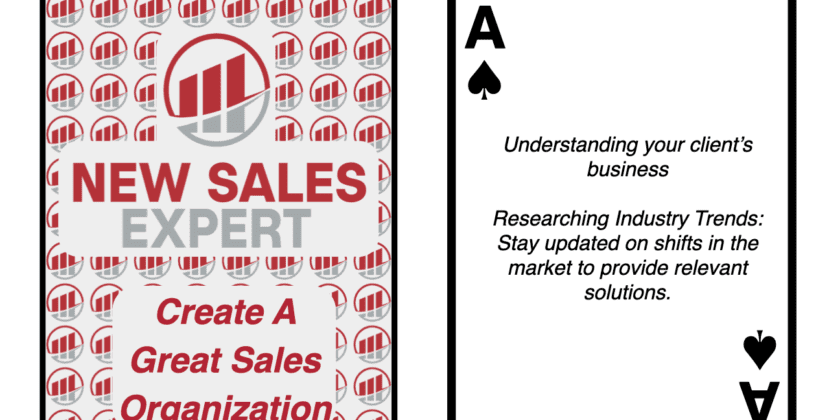
My mission is to bridge the expertise gap that hinders many companies from scaling their operations to the desired heights. The core issue often resides within the sales sector of these organizations, and this is where my expertise becomes a game changer.
Understanding the Challenge
Many company owners, be they founders or inheritors of the business, come to a crucial realization at some juncture in their entrepreneurial journey. Despite their prowess in product development, manufacturing, or service provision, they identify a glaring deficiency in their sales acumen. This inadequacy, unfortunately, bars them from propelling their companies to the next level of revenue generation and market share acquisition. The earnest attempts they might have made to rectify this situation often end in futility due to a lack of specialized knowledge in sales. Hence, they seek external expertise to resolve this bottleneck.
Affordable Expertise
A common concern among these business owners is the affordability of engaging a sales expert. While it’s true that the investment required for a full-time engagement may seem steep, my services are offered on a fractional basis, making them a viable option for many. The value of having a seasoned professional revamp your sales operations far outweighs the cost.
Creating a Self-Sufficient Sales Operation
With a wealth of 38 years of experience, I step into your organization to set up a robust sales team, instill effective sales methodologies, and fine-tune the messaging to resonate with your target market. By doing so, I lay a solid foundation for your sales team to thrive long after my engagement concludes. The emphasis is on creating a self-sufficient sales apparatus that continues to deliver results, allowing me to transition to aiding other businesses facing similar challenges.
Actionable Advice
- Evaluate your current sales operations to identify areas of improvement.
- Consider the value of engaging an external sales expert on a fractional basis to address these areas.
- Ensure the transition plan post-engagement is straightforward, enabling your sales team to sustain the improvements.
Reflect on these steps and envision the transformation your sales operations could undergo with the right expertise steering the helm. The goal is to achieve a state of self-sufficiency in your sales operations that guarantees sustained revenue growth, thereby unlocking the full potential of your enterprise.

Sailing Through the Business Sea: The Imperative of Understanding Client Industries
In the intricate dance of sales management, salespeople often become profoundly attuned to their own products, services, and performance metrics. However, they sometimes lose sight of an elemental cornerstone: genuinely understanding the client’s business. This omission is akin to a sailor venturing into the sea without comprehending its currents and tides. A lack of this depth of knowledge can lead one astray, making the voyage uncertain and potentially perilous.
Let’s start with an underlying principle: triumph isn’t simply about the merit of your product or service in the sales ecosystem. It’s intricately tied to the bigger picture of your client’s sector, their unique requirements, and inherent challenges. For instance, a physician would never recommend a new drug without an exhaustive assessment. Similarly, a sales maven should not provide solutions without a comprehensive grasp of the client’s operational goals and challenges.
Picture the world of commerce as a sprawling symphony with its distinct sections – finance, technology, health, entertainment, and more. Introducing a novel element into this setting without recognizing its intended cadence and synchronization is like striking a discordant note amidst a harmonious performance.
Moreover, the essence of industries is not static. They’re akin to living entities, evolving and reshaping, influenced by many external dynamics. Remember the challenges of supply chains a few years ago during the global pandemic crisis, which was disruptive to nearly every industry. Reflect on the tech sphere, where an innovation leap of merely 10% can redefine market paradigms. Or ponder the fashion industry, where trends can instantly pivot demand dynamics. This underlines the paramount significance of monitoring industry currents. It’s about envisioning not just the present but anticipating the future trajectory. And this foresight isn’t just academic—it’s a tangible asset sculpting sales tactics, product innovations, and client dialogues.
With each industry wave comes a plethora of challenges and windows of opportunity. A sales expert attuned to these modulations can craft proactive strategies. For instance, if insights indicate a surging trend of telecommuting in a domain, a firm dealing in office essentials might transition towards catering to home office needs. The fulcrum here lies in actionable strategies. Recognizing a shift is the starting line. The finish line? Crafting aligned strategies saying, “We recognize your industry’s transition, and our solution is primed to cater to it.”
To the CEOs, sales leaders, and organizational vanguards heeding this narrative, the takeaway is obvious: arm your sales brigades with the arsenal to perpetually decode industry waves. Foster a culture of perennial learning through seminars, journals, or deep-dive analytical sessions.
The commercial realm doesn’t exist in isolation. A ripple in one segment can cascade through others. By ensuring your salespeople are enlightened about their relative industry and the overarching market landscape, you elevate them, and consequently, your enterprise, to a pedestal of relevance, cognizance, and adaptability.
Truly grasping your client’s domain transcends the immediate deal. It crafts enduring alliances, painting you as an ally, not merely a supplier. Demonstrating to a client your intrinsic understanding of their industry’s intricacies, evolutions, and potential paths carves an indelible impression. It resonates with the ethos, “As your domain transitions, we remain with you, presenting apt solutions at every juncture.”
In the fluctuating oceans of commerce, let profound insight and cognition be your navigating star, directing you toward triumph, pertinence, and perennial collaborations.

In this thought-provoking podcast, hosts Kevin Lawson and Sean O’Shaughnessey dive into the challenges salespeople face when their sales process doesn’t align with the buyer’s journey. Using the example of a beer industry manufacturer, they explore the difficulties encountered when dealing with prospects who are only interested in the price and user count and how this can lead to feeling like a commodity. This insightful discussion underscores the importance of adapting to the buyer’s journey to sell more effectively.
As the conversation continues, Sean and Kevin emphasize the need to understand the buyer’s process, from recognizing the signs of a good prospect to determining the right time to buy. They highlight the importance of asking the right questions, listening to the buyer, and identifying their current position in the evaluation process. The hosts also discuss the concept of commercial teaching, which involves meeting prospects at their level of knowledge about the industry, solution, or product.
In addition, the duo addresses the challenge of long sales cycles and the factors that contribute to them, such as not understanding where the buyer is in their journey or not setting up for success earlier in the sales process. They encourage salespeople to be self-reflective and analyze their pipelines, identifying deals that may be stuck or taking longer than expected due to a lack of alignment with the buyer’s journey.
Furthermore, Kevin and Sean touch upon the importance of knowing the buyer persona, recognizing that different people within an organization have different perspectives and needs. By understanding the type of person you’re speaking with, salespeople can connect more quickly and effectively.
The podcast concludes with a challenge for salespeople to be introspective and consider how they can better align their sales process with the buyer’s journey for improved results.

Designing an effective sales compensation plan is critical to any successful sales organization. A well-crafted plan motivates your sales team, drives revenue growth, and aligns the interests of both the company and the sales representatives.
It’s essential to understand the impact of compensation on salespeople. Sales reps are highly motivated by money, and their income is directly tied to their performance. Incentives such as bonuses, commissions, and accelerators can all play a key role in driving sales performance. However, these incentives can have unintended consequences if not implemented correctly.
This blog post will explore various aspects of creating a successful sales compensation plan, including setting quotas, selecting base and variable pay, using accelerators, and employing rewards and contests. We’ll also discuss strategies for designing effective compensation plans for different types of sales roles and tips for continuously improving your compensation plan.
Read the rest of the article…
Sales coaching has become integral to the modern business environment, particularly in business-to-business (B2B) sales. The sales coaching process enhances salespeople’s skills, knowledge, and capabilities to achieve their goals, deliver value to customers, and improve organizational performance. In this article, we will examine the importance of sales coaching in B2B sales organizations, explore the best practices for effective coaching, and discuss the key benefits that result from a well-executed sales coaching program.
Sales coaching has become increasingly critical to the success of B2B sales organizations. Equipping salespeople with the skills, knowledge, and resources they need to deliver value to customers and drive business growth is essential. Here are three reasons why sales coaching is critical in B2B sales organizations.
Firstly, sales coaching helps salespeople to develop the necessary skills and knowledge to engage with customers, understand their goals or priorities, and provide tailored solutions. In a B2B sales environment, customers’ goals are often complex and unique, making it challenging to identify the best strategies for engaging with them. Effective sales coaching helps salespeople identify the most effective ways to engage with customers, build rapport, and establish trust. Through regular feedback and guidance, sales coaches can provide salespeople with insights on approaching different customer scenarios, offering valuable insights, and delivering a superior customer experience.
Sales coaching provides salespeople the necessary tools to improve their communication skills, such as active listening and effective questioning techniques. This active listening capability enables salespeople to understand customers’ unique goals and motivations better, allowing salespeople to provide tailored solutions that meet prospects’ expectations. This skill is essential in B2B sales organizations, where customers’ needs are complex and varied.
Secondly, sales coaching is essential for enhancing the performance of sales teams. Sales coaching helps salespeople to focus on their strengths and weaknesses, set clear goals, and develop strategies for achieving them. Coaching provides salespeople with performance feedback, identifies improvement areas, and provides guidance on addressing these areas. This, in turn, leads to improved sales performance, increased productivity, and higher levels of job satisfaction.
Effective sales coaching can help salespeople identify areas where they need to improve, such as their communication, time management, or presentation skills. Sales coaches can provide their teams with targeted feedback and guidance, offering practical solutions for improving performance. This not only helps salespeople to become more effective at their job, but it also helps them to feel more confident and engaged in their work.
Thirdly, sales coaching helps to create a culture of continuous learning within B2B sales organizations. Sales coaching enables salespeople to develop new skills, learn about new products and services, and keep up-to-date with industry trends. Continuous learning is vital for B2B sales organizations that operate in a dynamic and fast-paced environment, where the ability to adapt and learn quickly is essential for success.
Sales coaching allows salespeople to learn from their experiences and mistakes in a safe environment that doesn’t affect their revenue production. Sales coaches can guide how to approach different customer scenarios, offer valuable insights, and help salespeople to develop new skills. By fostering a culture of continuous learning, sales coaching can help B2B sales organizations to stay ahead of the curve and remain competitive in their industry.
Best Practices for Effective Sales Coaching
To ensure that sales coaching is effective, B2B sales organizations must adopt best practices aligned with their organizational goals and objectives. The following are some of the best practices for effective sales coaching:
- Provide Timely and Relevant Feedback: Feedback is critical to effective sales coaching. Managers and team members should provide feedback in a constructive manner that focuses on improvement rather than criticism. Feedback should be timely, relevant, and focused on specific behaviors or actions.
- Focus on Skill Development: Effective sales coaching should focus on developing the skills and knowledge necessary for success in a B2B sales environment. This includes communication, negotiation, problem-solving, and product and industry knowledge.
- Use a Coaching Framework: To ensure that sales coaching is consistent and effective, B2B sales organizations should use a coaching framework that provides a structured approach to coaching. A coaching framework should include a straightforward process for setting goals, giving feedback, and developing skills.
- Measure and Evaluate Coaching Effectiveness: B2B sales organizations should measure and evaluate revenue generation to ensure that sales coaching is effective. This includes tracking sales performance metrics, such as revenue, customer satisfaction, and retention rates.
Critical Benefits of Sales Coaching in B2B Sales Organizations
Effective sales coaching can deliver a range of benefits to B2B sales organizations. The following are some of the key benefits that result from a well-executed sales coaching program:
- Improved Sales Performance: Effective sales coaching can lead to improved sales performance, increased productivity, and higher levels of job satisfaction. Sales coaching provides salespeople the necessary skills, knowledge, and support to achieve their sales goals and deliver customer value. This, in turn, leads to increased sales revenue, higher customer satisfaction, and higher customer retention.
- Increased Employee Engagement: Sales coaching can help to increase employee engagement and motivation. When salespeople receive regular feedback, guidance, and support from their coaches, they feel more valued and invested in their work. This, in turn, leads to higher levels of job satisfaction and lower turnover rates.
- Enhanced Customer Relationships: Effective sales coaching can help salespeople build stronger customer relationships. Sales coaching can help salespeople to identify customer needs, provide tailored solutions, and establish trust. This leads to stronger customer relationships, higher customer satisfaction, and greater customer loyalty.
- Continuous Learning: Sales coaching helps create a continuous learning culture within B2B sales organizations. Sales coaching provides salespeople opportunities to learn new skills, develop their knowledge of products and services, and keep up-to-date with industry trends. This, in turn, leads to more significant innovation, improved performance, and competitive advantage.
- Aligned Goals of the Company and the Team: By doing an adequate job of sales coaching, the salespeople are working toward the same goals as the company. This prevents wasted activities that don’t serve the purposes of the company. Let’s discuss this a bit more.
Setting Clear Goals and Objectives
Setting clear goals and objectives for salespeople is crucial to the success of any B2B sales organization. These goals and objectives provide a framework for salespeople to work within and help to focus their efforts on achieving specific outcomes. Here are some reasons why setting clear goals and objectives is essential for salespeople:
Setting Clear Goals and Objectives: Coaching provides a sense of direction and focus.
Setting clear goals and objectives helps salespeople to understand what they are working towards and what they need to do to achieve success. Having a sense of direction and focus is essential for salespeople as it helps them to prioritize their tasks, make informed decisions that align with their company’s needs, and stay motivated.
Setting Clear Goals and Objectives: Helps to measure progress and success.
Setting clear goals and objectives allows salespeople to measure their progress and success. This is important as it provides a sense of achievement and helps to maintain motivation. Tracking progress will enable salespeople to adjust their approach to get on track to meet their goals.
Setting Clear Goals and Objectives: Creates accountability.
Setting clear goals and objectives helps to create accountability for salespeople. When goals and objectives are clearly defined, salespeople are more likely to take ownership of their work and strive to achieve their targets. This sense of ownership and accountability helps create a performance culture and can increase job satisfaction and employee retention.
Setting Clear Goals and Objectives: Aligns salespeople with the organization’s overall objectives.
Setting clear goals and objectives ensures that salespeople align with the organization’s overall objectives. This alignment is crucial as it helps to ensure that everyone is working towards the same goal and that the organization is moving in the right direction, as defined by company leadership. This can help create a sense of purpose and meaning for salespeople, increasing motivation and engagement.
When setting goals and objectives for salespeople, it is essential to ensure that they are specific, measurable, achievable, relevant, and time-bound. These SMART criteria help to ensure that goals and objectives are meaningful and actionable. Here are some tips for setting SMART goals and objectives for salespeople:
- Be specific: Clearly define what you want salespeople to achieve, such as revenue targets or the number of new customers.
- Make them measurable: Ensure that goals and objectives are measurable so everyone can track their progress and adjustments can be made if necessary.
- Make them achievable: Set goals and objectives that are challenging but achievable. Setting unrealistic goals can lead to demotivation and disengagement.
- Make them relevant: Ensure that goals and objectives are relevant to the salesperson’s role and the organization’s overall objectives.
- Make them time-bound: Set a clear timeframe for achieving goals and objectives. This helps to create a sense of urgency and ensures that salespeople are focused on achieving their targets.
Effective sales coaching that includes setting clear goals and objectives is a critical component of success in B2B sales organizations. It helps salespeople develop the skills, knowledge, and capabilities needed to engage with customers, enhance their performance, and create a culture of continuous learning. By adopting best practices for effective sales coaching, such as using the SMART criteria to set goals and objectives, B2B sales organizations can realize a range of benefits, including improved sales performance, increased employee engagement, enhanced customer relationships, and continuous learning. Therefore, sales coaching should be a top priority for any B2B sales organization that wants to achieve long-term success and growth.
If you are unsure how to create an atmosphere of great coaching in your organization, please contact me. You can reach me by filling out the form on this site or by emailing Sean@NewSales.Expert.
Header Photo by cottonbro studio

As a small business owner, you know that your company’s success depends on your sales team’s performance. That’s why providing your team with the tools they need to improve their skills and achieve goals is crucial. Regular coaching sessions help your sales team grow and perform at their best.
Identify Areas of Struggle and Success
Coaching allows you to identify areas where sales team members are struggling; while recognizing areas of success. You help your sales team focus on growth areas by acknowledging what works well or needs improvement. This effort fosters a culture of continuous improvement and provides sales team members with the tools they need to be successful.
Be Specific and Constructive
It is essential to be specific and constructive when providing coaching and feedback and providing actionable feedback that focuses on particular areas for improvement. By focusing on specific areas for improvement, you can help your sales team make changes to improve performance.
Provide Support and Guidance
Regular coaching and feedback sessions allow sales leaders to work closely with each sales team member, providing them with the guidance and support they need to improve their skills and achieve their goals. This coaching can include setting individual sales targets, providing training resources, and offering personalized support for each team member’s unique needs. By providing this support and guidance, you can help your sales team to succeed and contribute to the overall success of your business.
Regular coaching and feedback sessions are essential for improving the skills and performance of your sales team. By identifying areas of struggle and success, being specific and constructive in your feedback, and providing support and guidance, you can help your sales team achieve their goals and drive success for your small business. Remember, investing in your sales team is an investment in the future success of your business.

